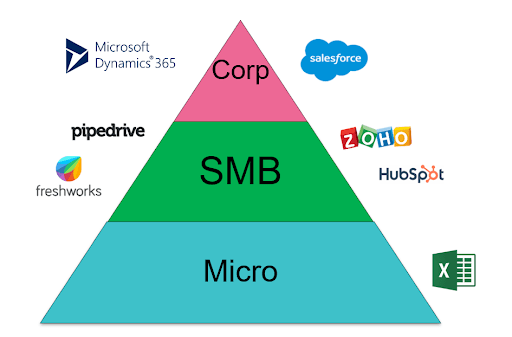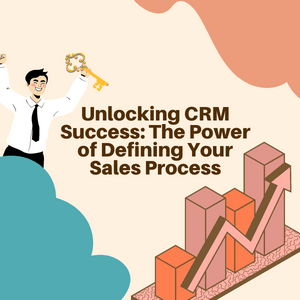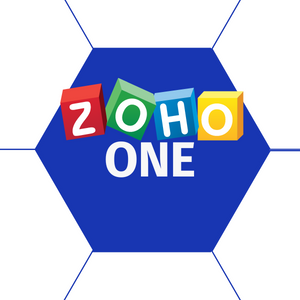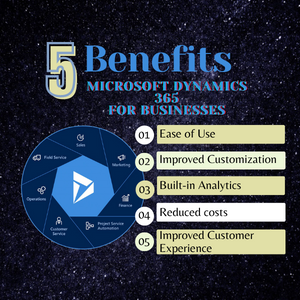When it comes to running a business, the need for automation and streamlining of processes has massively grown over the years. Hence, the surge in the usage of CRMs. However, one shoe doesn’t fill all.
The needs of a small business and those of a large business, or an enterprise, are different. To incorporate the different requirements, a number of CRM exist in the market. But then another issue rises – which is the ideal fit for your business?
To get more clarity, let’s first define what is meant by CRM for small business and for large business.
CRM for Small Business
CRM for small business is also known as niche or sales CRM. The customer relationship management software provides small to mid-size businesses tools to handle customer relationships, monitor sales, and improve the efficiency of marketing systems.
As the target market of these CRMs majorly consists of startups and developing companies, the communication with clients is carried out by a single sales team or multiple small teams. This is why small business CRM vendors limit functionality.
They put more focus on this single department with the help of tools such as contact management and calendars management. Rather than focusing on providing every feature in the sales automation book, CRM for small business is created in a manner that enhances usability for the salespeople.
What’s the main goal of CRM for small business?
Primarily, the aim is to build software that’s easy to use, simple, and intuitive. The users can set it up and run programs easily, without requiring the assistance of an IT expert.
CRM for Large Business and Enterprises
CRM for large business are developed keeping in mind that they include much more complicated workflows and vigorous business needs. As a result, these CRMs include multiple modules to accommodate compound operations that might cover several countries, territories, product lines, or lines of business.
Typically, CRM for large business helps those that function using massive databases and have many customer-facing departments, alongside sales teams. The USP of the solutions provided by these CRMs is instant and centralized access to data.
What’s the main goal of CRM for enterprises?
The number one priority is providing easy access to the multitude of data present in the system. After that comes feature-reach sales automation tools, extensive contact management, and scheduling tools that can support the day-to-day operations of a big business.
Similarities Between the Two CRMs
While the differences between the two are visible at a much higher level in terms of functionality, both types of CRMs share these three core services:
- Ability to handle data more efficiently
- They should be able to store and provide easy access to important information such as leads, contact info, purchase history, and so on.
- Customized sales approach
- They should offer each member of the team the opportunity to get their hand on and use the given information to handle the needs of the customers more effectively.
- Provision for a more personalized customer support service
- They should give the customers a more refined experience by providing informed and smart interactions.
Now that you have a clear idea of the foundation on which both are developed, we move on to the differences that set them apart.
Key Differences Between CRMs for Small and Large Businesses
When you are looking at the different CRMs and trying to decide which one to choose, keep the following points in mind:
Application Lifecycle Management (ALM)
The way in which CRM providers develop, govern, and maintain systems is known as Application Lifecycle Management. While it is not visible to the eyes of the end-users, some or all of its aspects might be a dealbreaker when choosing a CRM.
Some vital aspects to think of:
- Existence of Development and Quality Assurance environments – will you be able to develop implementations and customizations and test them in different ‘sites’ or the same one?
- The cadence of backup – if something happens, do you lose a day, a week, or a month of data? How can phishing fraud, or social Engineering affect your business, and what are they exactly?
Customization Capability
CRM requires implementation and customization to fully fit your business needs. It is not an off-the-shelf product although this application is also possible.
So what would we discover with CRMs crafted for larger businesses with more sophisticated business processes?
- More number of tools as compared to niche CRMs that are easy-to-use
- A bunch of existing extensions and guidance on how to code
- Better documentation
- Product roadmap and forecast on future features availability
If you’re a corporate organization with unique processes, it is worth evaluating a corporate-level CRM. The workaround can cost way more than onboarding an expensive system.
Availability and Scalability
When it comes to Service Level Agreement (SLA), be on the lookout for a number as close to 99.9% of the system availability as possible. If the system is down for maintenance, you cannot work. This can lead to poor performance and lessen your productivity.
Moving on to scalability, if you’re handling a bunch of clients in the system, it should not be ‘dying’ every time you make a search. So ensuring that it’s scalable as per your needs is vital.

Data Security
No matter the size of the business, the iron-clad safety of the private data you have should be the number one priority. This is why Corporate CRMs would have more flexible data security models – including and excluding user access as you need.
Price
Before making a purchase, consider the overall investment, this includes licenses plus existing integrations you might need to pay for as well as the expertise cost. Integrators, advisors, and even in-house experts of corporate CRMs usually charge more.
On the other hand, it might be hard to find a good expert for some smaller, especially niche, CRMs. So as a small business owner, you’ll need to research more thoroughly.
As far as our experience and research go, we have consistently landed on one platform when it comes to small businesses looking to manage 1-250 employees – Zoho CRM. Microsoft Dynamics 365 is our choice for the corporate-level CRM.
If you are hesitant what’s the right CRM for your business - let us know by contacting our experts. We’ll ask you questions and help validate your assumptions and resolve hesitations.





